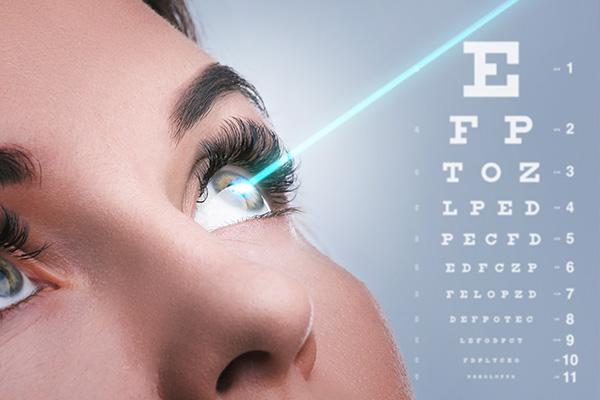LASIK
Since its introduction a few decades ago laser vision correction has rapidly evolved into an appealing and highly successful outpatient procedure that can reduce or eliminate the need for corrective eyeglasses or contact lenses. With a LASIK procedure, many refractive errors involving nearsightedness, farsightedness, or astigmatism can be corrected.
The high success rate of LASIK can be attributed to the advanced technology available today as well as the thorough evaluation process by which candidates are selected for the procedure.
If you are interested in a LASIK, our office will provide you with essential information about your candidacy for the procedure and advise you if any eye conditions, health issues or vision problems may be considerations in your treatment plan. By co-managing care with your LASIK surgeon, our office will help you to prepare for the procedure and take part in your post-operative care to help maintain your eye health and vision improvements.
Cataracts
As a cataract develops you may start to feel like you are looking through a foggy window and you may experience one or more of the following symptoms:
- Difficulty reading and increased sensitivity to light and glare
- Seeing halos, colors appear faded, poor night vision
- Double vision
It is of paramount importance that if you are experiencing any of these symptoms to schedule a comprehensive eye examination with our office. Early diagnosis and management are essential to preserving vision.
Today, thanks to advances in care, removing cataracts to restore vision is a routine, safe and effective surgical procedure. It involves removing the cloudy damaged lens and then replacing it with an artificial intraocular lens (IOL). In most cases, cataract surgery can be performed on an outpatient basis with the entire procedure typically taking less than an hour.
With the new types of lens implants that are available today, cataract surgery and lens replacement can also help to correct other vision problems for clearer, crisper eyesight.

